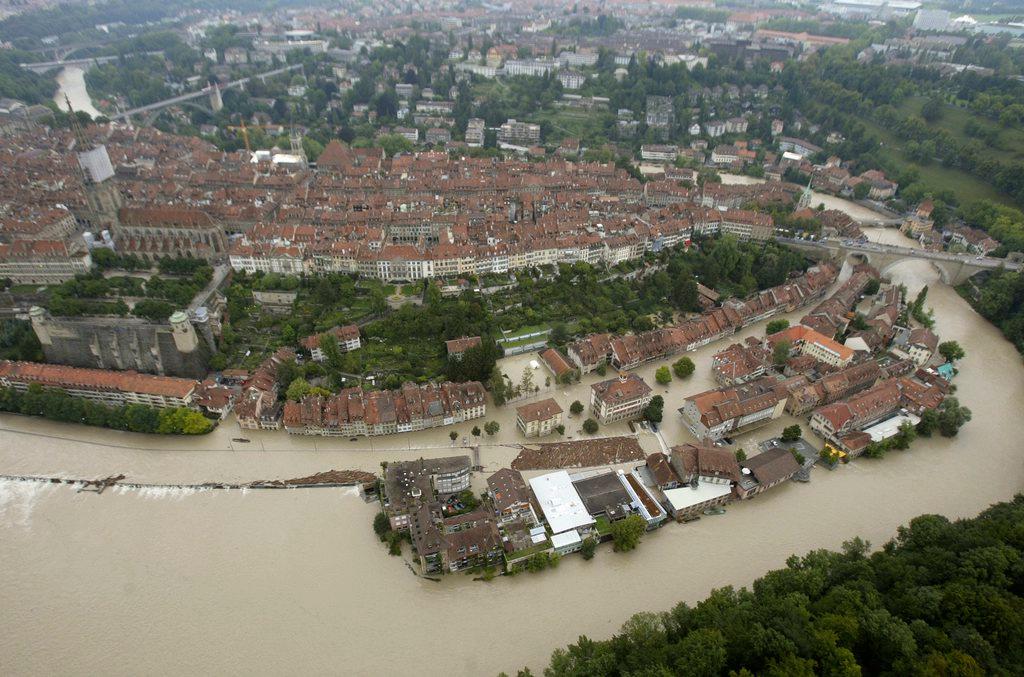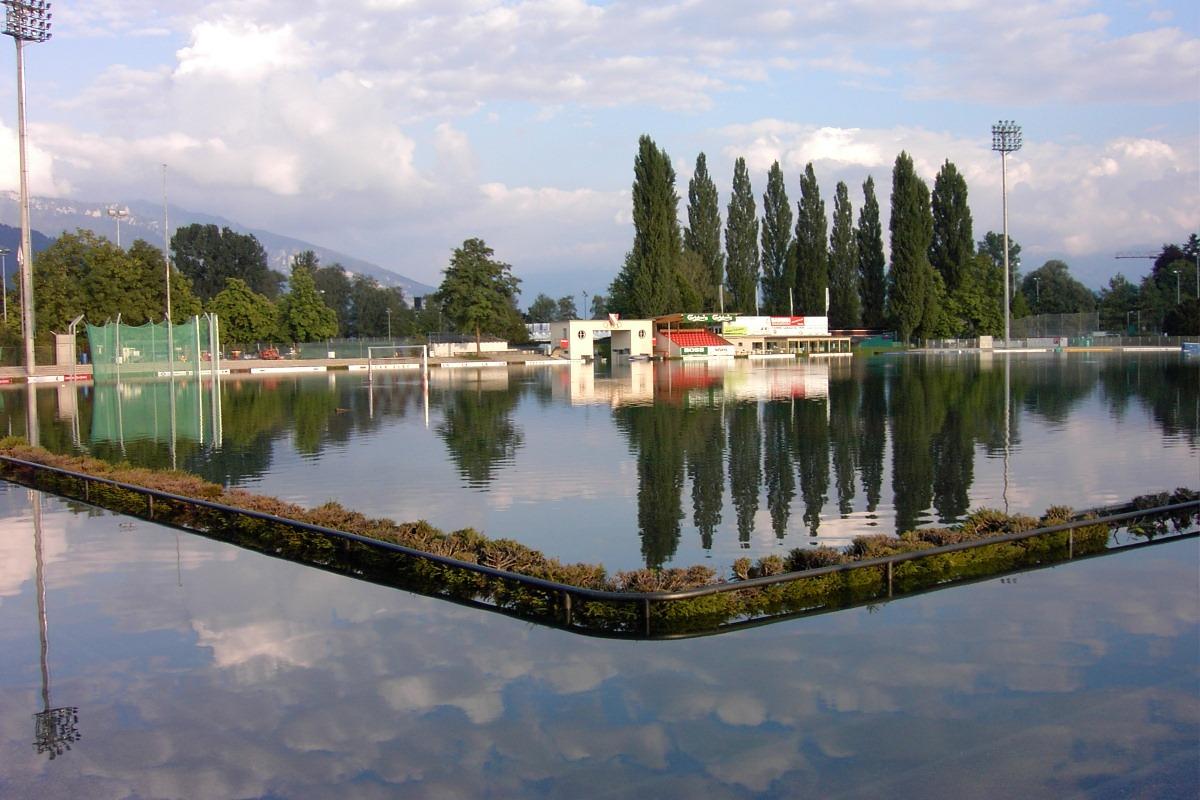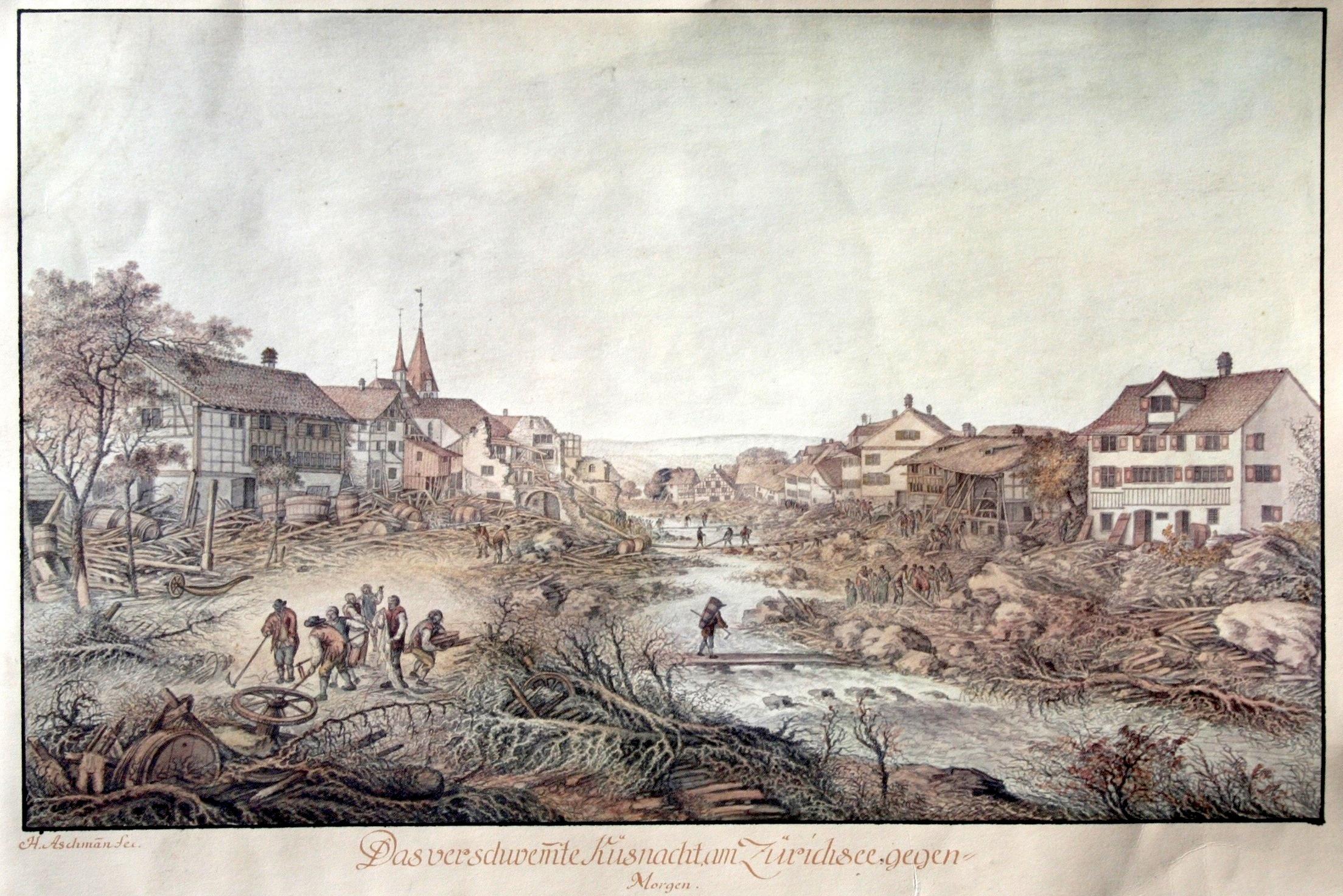Floods: images of the past help prepare for the future

With climate change, the risk of flooding is increasing in Switzerland. But the memory of these extreme events fades within a few years. A University of Bern project aims to reinforce collective memory by calling on citizens for their input.
The deluge was as sudden as it was unexpected. On the night of June 11, a violent storm struck the Swiss city of Lausanne, flooding the streets as well as shops and underpasses. Within ten minutes, 41 litres (11 gallons) of water had fallen per square metre — the equivalent of two weeks’ worth of ‘normal’ rainfall.
Those who experienced this exceptional event in person are not about to forget it. But in collective memory, it will probably disappear in a few years. Even if floods can cause enormous damage and have serious consequences for those affected, we forget about them quickly, wrote the Mobiliar Lab for Natural RisksExternal link at the University of Bern in a May press releaseExternal link (link in French and German).
The lab researchers have therefore launched an online platform, “Collective memory of floodsExternal link” (in French and German), which collects images from across Switzerland. The goal of the project is to remind the population of the risks of floods, and provide experts and authorities with a source of information to aid in risk assessment and evaluation, explains Rolf Weingartner, a professor of hydrology at the University of Bern.
In Switzerland, one building in seven is exposed to flood risk and in the last 40 years, floods have touched four municipalities in five throughout the country, the lab wrote.
The greatest damages due to a single event were recorded in August 2005: Several regions in Switzerland experienced heavy rainfall, and the total costs amounted to nearly CHF3 billion ($3.1 billion).

The images contained in the database come from the photo libraries and administrations of cantons and municipalities. There are also historical illustrations dating back to the 16th and 18th centuries. Citizens are invited to share their own images, which they can upload directly to the site.

Preventing — and preparing for — floods
As an alpine country, Switzerland is particularly vulnerable to natural hazards like floods, landslides and debris flows. With climate change, these phenomena are destined to become even more frequent and violent.
Since 1972, all floods affecting the country have been systematically recorded. The prevention strategy aims to avoid excessive urbanisation in risk zones, and to provide more space for water so that it can flow, according to the Federal Institute for Forest, Snow and Landscape Research (WSLExternal link). If necessary, protective works are installed.
WSL figures show that in 2017, bad weather in Switzerland caused CHF170 million in damages. Nearly 95% of damages were due to floods and debris flows.
According to the WSL, it’s the highest amount of the past ten years. It is however lower than the average of CHF307 million recorded for the period of 1972-2016.
Victims of these natural phenomena (not including avalanches) numbered eight last year, compared to an average of 2-3 in preceding years.
(Translated from French by Celia Luterbacher)

In compliance with the JTI standards
More: SWI swissinfo.ch certified by the Journalism Trust Initiative













You can find an overview of ongoing debates with our journalists here . Please join us!
If you want to start a conversation about a topic raised in this article or want to report factual errors, email us at english@swissinfo.ch.